About the Authors
- Last updated
- Save as PDF
- Page ID
- 179083
Katie Nelson, Inver Hills Community College
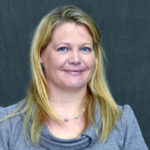
Katie Nelson is an instructor of anthropology at Inver Hills Community College. Her research focuses on migration, identity, belonging, and citizenship(s) in human history and in the contemporary United States, Mexico, and Morocco.
She received her B.A. in anthropology and Latin American studies from Macalester College, her M.A. in anthropology from the University of California, Santa Barbara, an M.A. in education and instructional technology from the University of Saint Thomas, and her Ph.D. from CIESAS Occidente (Centro de Investigaciones y Estudios Superiores en Antropología Social –Center for Research and Higher Education in Social Anthropology), based in Guadalajara, Mexico.
Katie views teaching and learning as central to her practice as an anthropologist and as mutually reinforcing elements of her professional life. She is the former chair of the Teaching Anthropology Interest Group (2016–2018) of the General Anthropology Division of the American Anthropological Association and currently serves as the online content editor for the Teaching and Learning Anthropology Journal. She has contributed to several open access textbook projects, both as an author and an editor, and views the affordability of quality learning materials as an important piece of the equity and inclusion puzzle in higher education.[10]
Lara Braff, Grossmont College
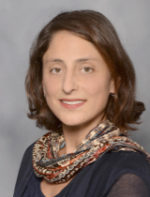
Lara Braff is an instructor of anthropology at Grossmont College, where she teaches cultural and biological anthropology courses. She received her B.A. in anthropology and Spanish from the University of California at Berkeley and both her M.A. and Ph.D. in comparative human development from the University of Chicago, where she specialized in cultural and medical anthropology. Her research has focused on social identities and disparities in the context of reproduction and medicine in both Mexico and the U.S.
Lara’s concern about the social inequality has guided her research projects, teaching practices, and involvement in open access projects like this textbook. In an effort to make college more accessible to all students, she serves as co-coordinator of Grossmont College’s Open Educational Resources (OER) and Zero Textbook Cost (ZTC) initiatives.
Priscilla Medeiros, Women’s College Hospital
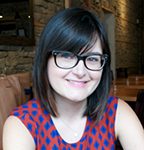
priscilla.medeiros@wchospital.ca
Dr. Priscilla Medeiros is a medical anthropologist and Postdoctoral Fellow in the Women’s College Research Institute at Women’s College Hospital, Canada. She recently defended her thesis in January 2019 at McMaster University, Ontario. Her primary research interests center on the anthropology of health. This involves studying the biocultural dimensions of medicine, with a particular emphasis on the history and development of public health measures in developed countries, sickness and inequalities, and gender relationships. Priscilla began her community-based work in prevention, care, and support of people living with HIV seven years ago in Nairobi County, Kenya, as part of her master’s degree at the University of New Brunswick. Her current postdoctoral work focuses on geospatial analysis of data from the Canadian HIV Women’s Sexual and Reproductive Health Study (CHIWOS) and expansion to the Atlantic Provinces, and is funded by the CIHR Canadian HIV Trials Network. When she is not working in the field or teaching in the classroom, Priscilla is traveling to exotic destinations to learn to prepare local cuisine, speak foreign languages, and explore the wonders of the world. In fact, she is the real-life Indiana Jane of anthropology when it comes to adventures in the field and has many great stories to share.
Emily Cowall, McMaster University
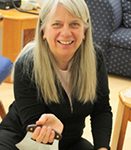
Dr. Emily Cowall is a cultural anthropologist and instructor in the department of Anthropology at McMaster University, Canada; Medical Historian; and former regulated health practitioner in Ontario. Her primary academic research interests are focused on the cultural ethno-history of the Canadian Arctic. Emily moved to the Eastern Arctic in the 1980s, where she became integrated into community life. Returning for community-based research projects from 2003-2011, her previous community relationships enabled the completion of a landmark study examining the human geography and cultural impact of tuberculosis from 1930-1972. From 2008-2015, her work in cultural resource management took her to the Canadian High Arctic archipelago to create a museum dedicated to the Defense Research Science Era at Parks Canada, Quttinirpaaq National Park on Ellesmere Island. When she is not jumping into Twin Otter aircraft for remote field camps, she is exploring cultural aspects of environmental health and religious pilgrimage throughout Mexico.
Linda Light, California State University, Long Beach

Linda Light has been a lecturer in linguistic and cultural anthropology at California State University Long Beach since 1995. During much of that period she also taught as adjunct professor at Cypress College, Santa Ana College, Rancho Santiago College, and Golden West College, all in Orange County, California. She was a consultant to Coastline Community College District in the production of thirty-five educational videos that were used in three series, including the cultural anthropology series Our Diverse World. Her main areas of interest have been indigenous language loss and maintenance, language and gender, and first language attrition in the children of immigrants.
Isaac Shearn, Community College of Baltimore County
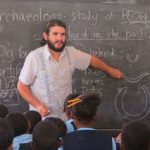
Isaacshearn@gmail.com
http://ccbcmd.academia.edu/IsaacShearn
Isaac Shearn earned his PhD in 2014 at the University of Florida and is an adjunct professor at the Community College of Baltimore County. His work focuses on the archaeology and ethnohistory of the Caribbean and South America, with a focus on public archaeology, developing inclusive and participatory methods. His ongoing research in Dominica allows him to pursue his second major passion in life besides archaeology: music. He has played drums for a Dominican reggae band since 2010.
Sarah Lyon, University of Kentucky
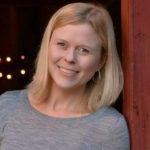
http://anthropology.as.uky.edu/users/smlyon3
Sarah Lyon is an Associate Professor of Anthropology at the University of Kentucky. Her work is situated at the juncture of development studies, economic anthropology and food studies. She is particularly interested in how alternative food networks such as fair trade work to create and sustain diverse economies in the United States and Latin America.
Paul McDowell, Santa Barbara City College
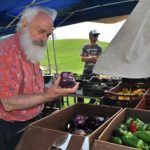
Paul McDowell (Ph.D. University of British Columbia, 1974) examined the transition of the civil-religious hierarchy in a factory and peasant community in Guatemala to a secular town government and church organization called Accion Catolica. He is the author of Cultural Anthropology: A Concise Introduction and Cultures Around the World: An Ethnographic Reader; he has also read several papers on the political globalization of Guatemala.
Mary Kay Gilliland, Central Arizona College
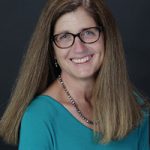
Mary K. Gilliland, Ph.D. (also published as Mary K. Gilliland Olsen) earned a B.A. from Bryn Mawr College, with Honors in Anthropology; and M.A. and Ph.D. degrees in anthropology from the University of California, San Diego. Her primary research took place in the former Yugoslavia (1982-4, 1990-1), Croatia (1993, 1995, 1996-7) and with displaced Bosnians, Croats and Serbs in the United States (2001-3). In Croatia, Mary Kay was affiliated with the Filozofski Fakultet in Zagreb, the Ethnographic Museum in Slavonski Brod (Croatia/Yugoslavia), and with the Institute for Anthropological Research (Zagreb, Croatia both pre- and post-independence). Continuing affiliation as member of Editorial Board for the Collegium Antropologicum: The Journal of the Institute for Anthropological Research, and named a Lifetime Member of the Croatian Anthropological Society. Mary Kay has also collaborated in projects in Asia, including People’s Republic of China (primarily Xinjiang, Western China), Mongolia and Vietnam. Her areas of research interest and publication include culture and social change, gender and ethnic identity, family, marriage and intergenerational relationships. Primarily a “teaching anthropologist,” Mary Kay was full-time faculty and Department Chair at Pima Community College in Tucson, Arizona from 1989-2006. She maintains an ongoing relationship as Associate Adjunct Professor of Anthropology at the University of Arizona. She has taught at San Diego Mesa College, University of California, San Diego and the University of Zagreb. Since 2006 she has held a variety of administrative positions including Academic Dean, Vice President of Instruction and is currently Vice President of Academic Affairs at Central Arizona College.
Justin D. García, Millersville University of Pennsylvania
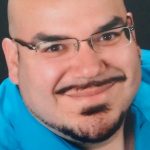
jgarcia@millersville.edu
www.millersville.edu/socanth/faculty/garcia-dr.-justin.php
I am an Assistant Professor of Anthropology at Millersville University of Pennsylvania, a public state-owned university located approximately 70 miles west of Philadelphia. I earned my Ph.D. in Anthropology from Temple University in 2011, with a specific focus in urban anthropology. I currently live in Chester County, Pennsylvania in suburban Philadelphia. My research interests include U.S. immigration, social constructs of race and ethnicity, urban social/cultural life, U.S. popular culture, human evolution/the hominid lineage, and anthropological theory. Aside from anthropology, my hobbies include lifting weights, watching sports (particularly boxing, football, and basketball) and movies, traveling, and playing video games (the Grand Theft Auto series is my personal favorite).
Carol C. Mukhopadhyay, San Jose State University
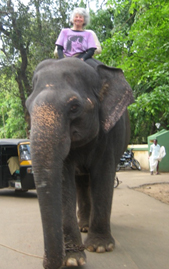
carol.mukhopadhyay@sjsu.edu
www.sjsu.edu/people/carol.mukhopadhyay
Dr. Mukhopadhyay specializes in gender, sexuality, race/ethnicity, and culture-cognition, with research in the USA and India on gendered families, politics, and science-engineering. In graduate school she co-created one of the earliest gender-culture courses. She has developed numerous gender classes and taught, for 20 years, a popular anthropology and gender-oriented, multi-section Human Sexuality course. Gender-related publications include: Cognitive Anthropology Through a Gendered Lens (2011). How Exportable are Western Theories of Gendered Science? (2009), A Feminist Cognitive Anthropology: The Case of Women and Mathematics (2004), Women, Education and Family Structure in India (1994, with S. Seymour). She co-authored an early Annual Review of Anthropology article on gender (1988) and is in the Association for Feminist Anthropology. In other work, she served as a Key Advisor for the AAA RACE project; co-authored How Real is Race: A Sourcebook on Race, Culture and Biology, (2nd Edition, 2014) and promotes active learning approaches to teaching about culture (cf.2007).
Tami Blumenfield, Yunnan University
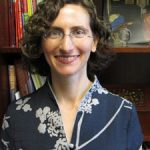
Tami Blumenfield is a faculty member in the School of Ethnology and Sociology at Yunnan University and was a 2016 Fulbright Scholar affiliated with Yunnan University. Since 2001, she has been engaged in a long-term ethnographic fieldwork project in northwest Yunnan Province, studying changes in education, social life, and ecology in Na communities. Blumenfield is the co-editor of Cultural Heritage Politics in China, with Helaine Silverman (2013), and of Doing Fieldwork in China…With Kids! with Candice Cornet (2016). Blumenfield also produced Some Na Ceremonies, a Berkeley Media film by Onci Archei and Ruheng Duoji. Blumenfield holds a PhD in Sociocultural Anthropology from the University of Washington.
Susan Harper, Texas Woman’s University

Susan Harper, Ph.D., is an educator, activist, and advocate in Dallas, Texas. She holds a Ph.D. in Cultural Anthropology from Southern Methodist University and a Graduate Certificate in Women’s Studies from Texas Woman’s University. Her ethnographic research focuses on New Religious Movements, primarily NeoPaganism, in the American South; the intersection of gender, sexuality, and religious identity; and ses, sexuality, and sex education. Her work has been published in the Journal of Bisexuality. Susan is passionate about a variety of social justice causes, including domestic and intimate partner violence prevention and recovery, sexual assault prevention and recovery, LGBTQ equality and inclusion, and educational justice. She has given presentations on LGBTQ equality and inclusion to a variety of audiences, including the North Texas Society of Human Resource Managers, The Turning Point Rape Crisis Center, and various religious organizations. She teaches courses in anthropology, sociology, and Women’s and Gender Studies at various universities and colleges in the DFW area. She also serves as Graduate Reader/Editor for Texas Woman’s University. She is currently working on an autoethnography about burlesque and visual anthropology project exploring the use of Pinterest by practitioners of NeoPaganism.
Abby Gondek

Abby Gondek is a PhD candidate in Global and Socio-cultural Studies (majoring in Anthropology/Sociology) at Florida International University in Miami, Florida. She defended her dissertation proposal in April 2016. Her project, “Jewish Women’s Transracial, Transdisciplinary and Transnational Social Science Networks, 1920-1970” uses social network analysis and grounded theory methodology to understand the relationships between the anti-racist and pro-political/economic justice stance taken by Jewish female social scientists and their Jewish gendered-racialized subjectivities. Further information about her work is available from http://transform-art-gender.webs.com and http://abbygondek.blogspot.com.
Sashur Henninger-Rener, Pasadena City College
Sashur Henninger-Rener is an anthropologist with research in the fields of comparative religion and psychological anthropology. She received a Master of Arts from Columbia University in the City of New York in Anthropology and has since been researching and teaching. Currently, Sashur is an instructor at Pasadena City College, teaching Cultural and Biological Anthropology. In her free time, Sashur enjoys traveling the world, visiting archaeological and cultural sites along the way. She and her husband are actively involved in animal rescuing, hoping to eventually found their own animal rescue for animals that are waiting to find homes.
Lauren Miller Griffith, Texas Tech University
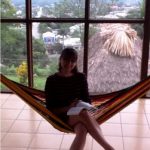
https://www.depts.ttu.edu/sasw/People/Griffith.php
Dr. Lauren Miller Griffith is an assistant professor of anthropology at Texas Tech University. Her research agenda focuses on the intersections of performance, tourism, and education in Brazil, Belize, and the USA. Specifically, she focuses on the Afro-Brazilian martial art capoeira and how non-Brazilian practitioners use travel to Brazil, the art’s homeland, to increase their legitimacy within this genre. Dr. Griffith’s current interests include the links between tourism, cultural heritage, and sustainability in Belize. She is particularly interested in how indigenous communities decide whether or not to participate in the growing tourism industry and the long-term effects of these decisions.
Jonathan S. Marion, University of Arkansas

marion@uark.edu
https://fulbright.uark.edu/departmen...php?uId=marion
Dr. Jonathan S. Marion is an associate professor in the Department of Anthropology and a member of the Gender Studies Steering Committee at the University of Arkansas, and the author of Ballroom: Culture and Costume in Competitive Dance (2008), Visual Research: A Concise Introduction to Thinking Visually (2013, with Jerome Crowder), and Ballroom Dance and Glamour (2014). Currently the President of the Society for Humanistic Anthropology, and a Past-president of the Society of Visual Anthropology, Dr. Marion’s ongoing research explores the interrelationships between performance, embodiment, gender, and identity, as well as issues of visual research ethics, theory, and methodology.
Laura Nader, The University of California, Berkeley
Laura Nader is a Professor of sociocultural anthropology at the University of California, Berkeley. Nader’s current work focuses on how central dogmas are made and how they work in law, energy science, and anthropology. She has published several books on conflict resolution and the law including Harmony Ideology: Justice and Control in a Mountain Zapotec Village (1990) and The Life of the Law: Anthropological Projects (2002). She has also conducted research in the anthropology of science, with a particular focus on energy. Her books Naked Science: Anthropological Inquiry into Boundaries, Power, and Knowledge (1996) and The Energy Reader (2010) are two examples of her work on these topics. She has also produced ethnographic films, including the 2012 film Losing Knowledge: 50 Years of Change, which explores the ways in which indigenous knowledge is vanishing. Dr. Nader is a member of the American Academy of Arts and Sciences and has received numerous awards and honors including the CoGEA Award from the American Anthropological Association and the Harry J. Kalven, Jr. award from the Law and Society Association.
Christian T. Palmer, Windward Community College
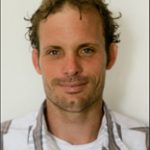
I grew up hiking and surfing in Hawaii and became interested in the environment and conservation. I studied Biology and International Cultural Studies at Brigham Young University-Hawaii as an undergraduate, including research on how traditional Hawaiian healers adapted to introduced plant species and diseases. My master’s degree is in Environmental Science from the Yale School of Forestry and Environmental Studies where I researched extractive reserves in the Brazilian Amazon. My Ph.D. in Cultural Anthropology at the University of California, Santa Cruz focused on tourism, urban development, and conservation in a small fishing town in Northeastern Brazil that was transitioning to a tourist economy.
Bryce Peake, University of Maryland, Baltimore County
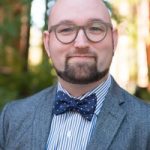
Bryce Peake is an assistant professor of Media & Communication Studies and an affiliate faculty member in Gender Women’s Studies at the University of Maryland, Baltimore County. His current research focuses on masculinity, media, and science in the post-World War II British Mediterranean spaces of Gibraltar and Gozo. He has also published multimodal projects on race in the United States, and been recognized by the American Anthropological Association for his ethnographic photography. Bryce currently runs the Anthropology, Mediated workshop on the island of Gozo, a 15 day ethnographic media fieldschool for undergraduates. Prior to arriving at UMBC, Bryce was a Julie & Rocky Dixon Fellow in Graduate Innovation, and worked with anthropologists at Intel Labs to develop a data-tracking application for users living with Tinnitus.
Logan Cochrane, Banting Fellow, Carleton University
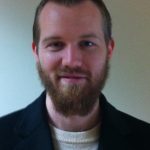
logan.cochrane@gmail.com
http://www.logancochrane.com
Logan Cochrane is a Banting Fellow at Carleton University (Global and International Studies) and Adjunct Professor at Hawassa University (Institute for Policy and Development Research). For the last twelve years he has worked overseas, including in Afghanistan, Benin, Burundi, the Democratic Republic of Congo, Ethiopia, Tanzania and Uganda. Logan has worked as a consultant with clients that have included Management Sciences for Health, Save the Children, The Liaison Office, UNICEF and UNAIDS.
Robert Borofsky, Hawaii Pacific University, Center for a Public Anthropology
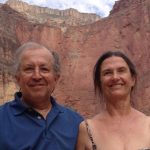
borofsky@hpu.edu
http://www.publicanthropology.org/
Robert Borofsky is Professor of Anthropology at Hawaii Pacific University. A distinguished scholar, he has authored or edited six books as well as published articles in the discipline’s leading journals. Dr. Borofsky is editor of the Public Anthropology Book Series published by University of California Press, Director of the Center for a Public Anthropology, and webmaster of the http://www.publicanthropology.org and http://www.publicanthropology.net websites. Selected publications include: Making History (1987), Assessing Cultural Anthropology (1994), Remembrance of Pacific Pasts (2000), and The Yanomami: The Fierce Controversy and What We Can Learn From It (2005).

